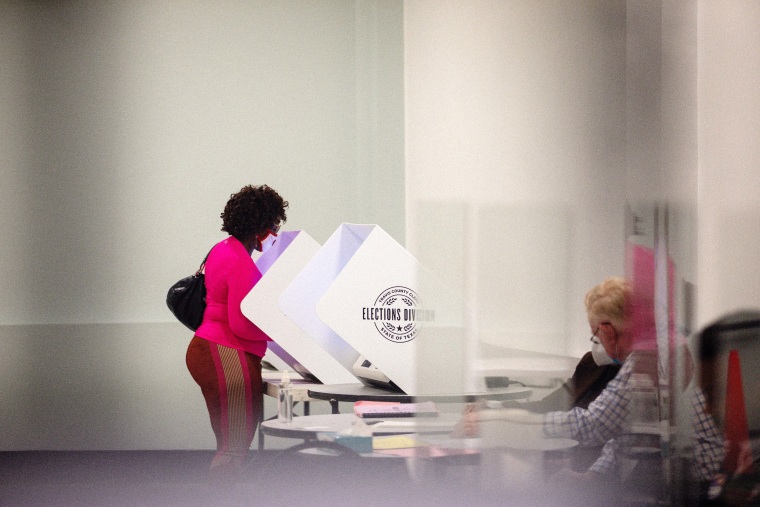Three weeks removed from the Texas primary elections, we’re starting to get a clear picture of just how devastating Republicans’ assault on voting rights in the state has been.
Multiple analyses of the votes cast in this year’s primaries have shown that a disturbingly high number of mail ballots were rejected. This was due in no small part to a series of voter identification measures (read: voter suppression measures) Republicans passed in response to baseless allegations of election fraud in the 2020 elections.
Election officials have been sounding the alarm about the law’s potential for voter disenfranchisement for months.
As I wrote in February, the GOP-backed Texas Senate Bill 1, signed into law in September, includes some of the strictest voting requirements in the country. Election officials have been sounding the alarm about the law’s potential for voter disenfranchisement for months.
S.B. 1 requires voters to include the same state identification number they used to register to vote — either a Social Security number or driver’s license number — on their mail ballot. Even if a voter includes a state identification number, their mail ballot must be rejected if it doesn’t match the number used to register.
An analysis published by The Texas Tribune earlier this month found at least 18,000 mail ballots were rejected across just 16 of the state’s largest counties. A broader Associated Press analysis looked at 187 counties and found nearly 23,000 mail ballots were rejected. That number amounts to about 13 percent of mail ballots cast, AP said.
“While historical primary comparisons are lacking, the double-digit rejection rate would be far beyond what is typical in a general election, when experts say anything above 2% is usually cause for attention,” according to AP's analysis.

A New York Times review of Texas election and census data found the ballot rejections hit heavily Black areas the hardest, affirming activists’ concerns that the bill would lead to racist voter suppression. Areas in Harris County, the state’s biggest county, with large Black populations were 44 percent more likely to have ballots rejected than heavily white areas, according to the Times. It also found "Black residents made up the largest racial group in six of the nine ZIP codes with the most ballot rejections in the county."
These results were quite predictable. The author of the bill, Texas state Sen. Bryan Hughes, briefly signed on to represent then-President Donald Trump in his baseless lawsuit alleging voter fraud in Pennsylvania during the 2020 election.
Hughes no longer serves on Trump's legal team, but the racist results of S.B. 1 show he never lost interest in passing laws that could keep Black votes out of the ballot box.
Related:
